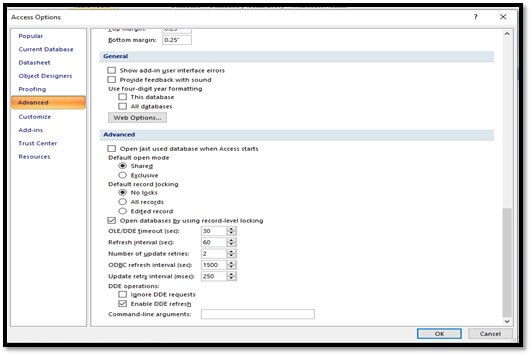How to Fix MS Access Error 3045 Easily?
Megha Chouhan
|
Updated On - October 11, 2023
Read time: 3 minutes
MS Access is a Microsoft Office application for Database Management. It combines the Microsoft Jet Database Engine with a graphical user interface and software development tools. It also allows linking related information easily. It comes in high-end editions for professional purposes.
MS Access Database is one of the widely used applications. Although, like any other database application, this application also gets affected by an error. When the “Access MDB Could Not Use File Already in Use” error message gets displayed on your screen and receives the same error whenever trying to open the database. It means your Access file is get affected by error 3045. This error is usually seen while accessing MDB or ACCDB files i.e. at runtime. Due to this error, users become unable to access data stored in it. Another access database error 3151 can affect the ODBC connection between Microsoft Access.
Follow the following solutions to fix the error 3045

When you are opening the MS Access DB file from another MS access file. You have to use the OpenDatabase function, by applying the following-
Where
The first parameter is a string of path and file name of your DB file
The second parameter is the key to solving this problem
False is Shared Mode
True is Exclusive Mode.
Even after applying all the above-discussed solutions, you may get the error 3045. Then the most recommended option is to make use of the hassle-free and guaranteed solution, the Kernel for Access Database Repair tool which instantly repairs corrupt and damaged Access databases. This tool is specifically designed to troubleshoot any type of corruption issue that occurs in the Access Database.
This third-party tool is one of the widely used applications to fix Access database issues. The software is capable of repairing even badly damaged MDB or ACCDB files and remove access database unrecognized format error too. It restores each database object with total data integrity and also gives you the freedom to repair MDB files of every size. One can easily restore permanently deleted data also from the Access database file with the help of this application. This software supports all the versions of MS Access. Because of its user-friendly interface, it is easy to use.
Managing a database is one of the difficult tasks when errors such as 3045 continuously started corrupting the database. And when the database file gets damaged or corrupted, a user loses access to its database. At this point, I will highly recommend you start moving to professional solutions for such errors. Kernel for Access simplifies the process of Access database recovery. Hope this blog helps you with the best possible ways to resolve the error 3045.